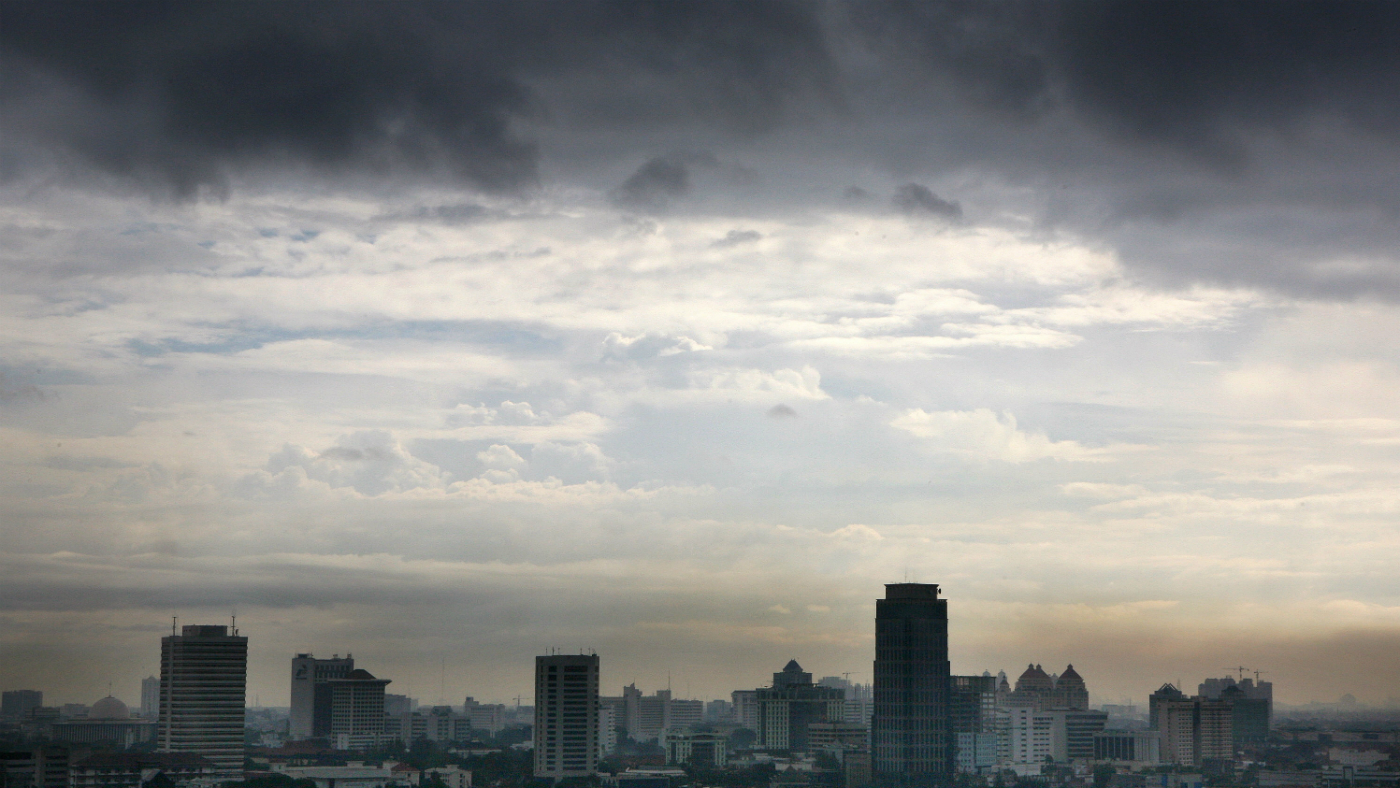Climate change could make cities 7C warmer, say scientists
'Heat island' effect of concrete and asphalt could cost major cities twice as much as rest of world

A free daily email with the biggest news stories of the day – and the best features from TheWeek.com
You are now subscribed
Your newsletter sign-up was successful
Cities will be hit the hardest by climate change because of the "urban heat island" effect that traps warmth, according to a new study.
The research, published in the journal Nature Climate Change, found that world cities will potentially face costs twice as big compared to their surroundings.
They say this is due to the "urban heat island" effect, where cities are often several degrees warmer than rural areas due to the heat trapped by dark-coloured roads and buildings.
The Week
Escape your echo chamber. Get the facts behind the news, plus analysis from multiple perspectives.

Sign up for The Week's Free Newsletters
From our morning news briefing to a weekly Good News Newsletter, get the best of The Week delivered directly to your inbox.
From our morning news briefing to a weekly Good News Newsletter, get the best of The Week delivered directly to your inbox.
The phenomenon is so pronounced that it "enables olives to be grown next to a south-facing stone wall as far north as Aberdeen," The Independent reports.
Through temperature data dating back to 1950 for 1,692 cities, the researchers predicted that one in four of the world's biggest cities might be up to 7C warmer by the end of this century.
Such a steep increase would have "dire consequences for the health of city-dwellers, rob companies and industries of able workers, and put pressure on already strained natural resources such as water," says The Guardian.
The study predicts that the worst-affected cities could lose as much as 10.9 per cent of their GDP.
A free daily email with the biggest news stories of the day – and the best features from TheWeek.com
Cities cover only one per cent of the earth's surface, but are home to 54 per cent of the world's population.
However, the paper's authors say that the unique environmental factors of urban landscapes are often overlooked in climate change research.
"Studies on climate change impacts in cities mostly focus on a limited set of countries and risks, for example sea-level rise, health and water resources," the paper says, and "do not take into account that large cities will experience additional warming due to the urban heat island effect."
Professor Richard Tol of Sussex University says the team's findings highlight the need for locally-tailored responses to climate change.
"Any hard-won victories over climate change on a global scale could be wiped out by the effects of uncontrolled urban heat islands," he says.
"City-level adaptation strategies to limit local warming have important economic net benefits for almost all cities around the world."
The paper suggests modifications to urban construction to minimise heat absorption, including using "cooler" alternatives to asphalt for pavements, painting roofs with a reflective coating and planting more trees.
-
 Ex-South Korean leader gets life sentence for insurrection
Ex-South Korean leader gets life sentence for insurrectionSpeed Read South Korean President Yoon Suk Yeol was sentenced to life in prison over his declaration of martial law in 2024
-
 At least 8 dead in California’s deadliest avalanche
At least 8 dead in California’s deadliest avalancheSpeed Read The avalanche near Lake Tahoe was the deadliest in modern California history and the worst in the US since 1981
-
 Political cartoons for February 19
Political cartoons for February 19Cartoons Thursday’s political cartoons include a suspicious package, a piece of the cake, and more
-
 Epstein files topple law CEO, roil UK government
Epstein files topple law CEO, roil UK governmentSpeed Read Peter Mandelson, Britain’s former ambassador to the US, is caught up in the scandal
-
 Iran and US prepare to meet after skirmishes
Iran and US prepare to meet after skirmishesSpeed Read The incident comes amid heightened tensions in the Middle East
-
 Israel retrieves final hostage’s body from Gaza
Israel retrieves final hostage’s body from GazaSpeed Read The 24-year-old police officer was killed during the initial Hamas attack
-
 China’s Xi targets top general in growing purge
China’s Xi targets top general in growing purgeSpeed Read Zhang Youxia is being investigated over ‘grave violations’ of the law
-
 Panama and Canada are negotiating over a crucial copper mine
Panama and Canada are negotiating over a crucial copper mineIn the Spotlight Panama is set to make a final decision on the mine this summer
-
 Why Greenland’s natural resources are nearly impossible to mine
Why Greenland’s natural resources are nearly impossible to mineThe Explainer The country’s natural landscape makes the task extremely difficult
-
 Iran cuts internet as protests escalate
Iran cuts internet as protests escalateSpeed Reada Government buildings across the country have been set on fire
-
 US nabs ‘shadow’ tanker claimed by Russia
US nabs ‘shadow’ tanker claimed by RussiaSpeed Read The ship was one of two vessels seized by the US military